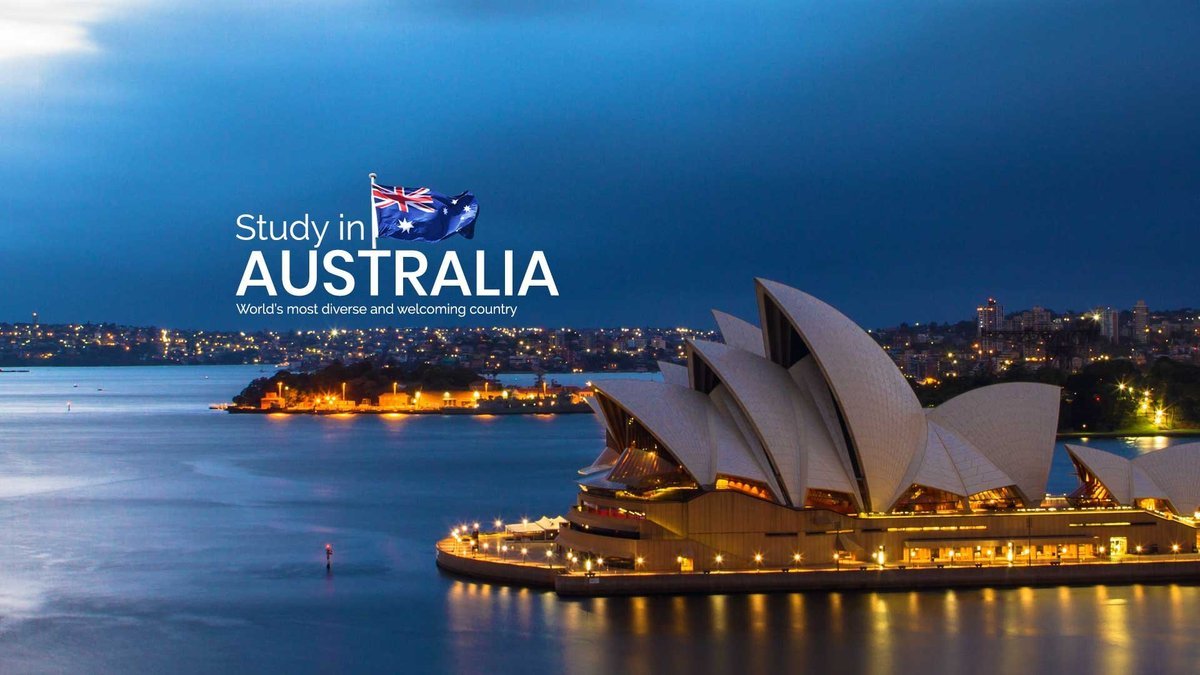Australia is a top destination for international students, offering a vibrant multicultural society, world-renowned universities, and ample career opportunities. However, the cost of studying in Australia can be a significant factor to consider before you make this life-changing decision. In this article, we’ll explore the expenses involved in studying in Australia, from tuition fees to living costs, and provide a comprehensive breakdown to help you plan your budget effectively.
Understanding the Cost of Studying in Australia
Tuition Fees for International Students
Tuition fees in Australia vary widely depending on the type of course, institution, and level of study. Here’s a general overview of what you can expect:
- Undergraduate Programs: For a Bachelor’s degree, international students can expect to pay between AUD 20,000 to AUD 45,000 per year, depending on the field of study and institution. Degrees in fields like medicine or engineering may be on the higher end of this range.
- Postgraduate Programs: A Master’s degree typically costs between AUD 22,000 to AUD 50,000 per year, with MBAs and specialized fields costing more.
- Doctoral Programs: Ph.D. programs are generally less expensive, with annual fees ranging from AUD 18,000 to AUD 42,000. Some universities offer scholarships for Ph.D. students, which can reduce the cost significantly.
It’s important to note that these are general ranges, and some prestigious institutions may charge higher fees. Additionally, many Australian universities offer scholarships and financial aid options to help international students offset their tuition costs.
Cost of Living in Australia
The cost of living in Australia varies based on your location, lifestyle, and accommodation choice. Major cities like Sydney and Melbourne are more expensive compared to regional areas. On average, international students are advised to budget around AUD 21,000 to AUD 27,000 per year for living expenses, as required by the Australian Government for student visa purposes.
Breakdown of Living Expenses
-
Accommodation:
- On-campus accommodation ranges from AUD 110 to AUD 280 per week.
- Shared rental apartments cost between AUD 95 to AUD 215 per week.
- Renting a one-bedroom apartment in a city center may cost AUD 300 to AUD 500 per week.
-
Utilities:
- Electricity, gas, and water combined may cost between AUD 15 to AUD 30 per week if shared among roommates. Internet may add another AUD 15 to AUD 30 per week.
-
Food and Groceries:
- A single person’s monthly grocery bill ranges from AUD 300 to AUD 500, while dining out occasionally may cost around AUD 20 to AUD 50 per meal.
-
Transportation:
- Public transportation costs vary by city but are generally around AUD 30 to AUD 60 per week. Most cities offer student discounts on public transport passes.
-
Miscellaneous Expenses:
- Additional costs like health insurance, mobile phone plans, and entertainment can add another AUD 50 to AUD 100 per week.
Mandatory Health Insurance for International Students
Australia requires all international students to have Overseas Student Health Cover (OSHC) as a condition of their student visa. OSHC covers doctor visits, hospital treatments, and limited prescription medications. The cost of OSHC varies by provider and duration, typically costing between AUD 450 to AUD 600 per year for a single student.
Some universities include OSHC in their tuition package, while others allow you to choose from different providers. It’s essential to research your options and select a plan that best fits your health needs and budget.
Student Visa Application Fees
To study in Australia, international students must apply for a Student Visa (subclass 500). The application fee for a student visa is around AUD 650. This visa allows you to study full-time in Australia and work up to 48 hours per fortnight during the academic term. During semester breaks, students can work full-time, which can help offset living expenses.
Additional Costs to Consider
1. Application Fees for Universities
Each university has an application fee that ranges from AUD 50 to AUD 150. Be sure to include this expense when budgeting for your application process, especially if you plan to apply to multiple institutions.
2. IELTS or TOEFL Examination Fees
If you’re from a non-English-speaking country, you’ll likely need to take an English proficiency test like the IELTS or TOEFL. These exams cost approximately AUD 350 to AUD 400 and are a one-time expense unless you need to retake the test.
3. Airfare and Travel Expenses
Flights to Australia can vary greatly in cost depending on your home country and the time of year. On average, a one-way ticket can range from AUD 700 to AUD 1,500. Students should also factor in costs for baggage fees, especially if they’re planning on staying long-term.
4. Textbooks and Course Materials
Course materials like textbooks and supplies are an additional cost to consider. Depending on your field of study, textbooks can cost between AUD 500 to AUD 1,000 per year. Some students find affordable options by purchasing second-hand books, renting them, or using online resources.
5. Emergency Fund
It’s always wise to set aside an emergency fund for unexpected expenses, such as medical costs beyond OSHC coverage or urgent travel. Having an extra AUD 1,000 to AUD 2,000 as a backup fund can provide peace of mind while studying abroad.
Ways to Save on Study Costs in Australia
Scholarships and Financial Aid
Many Australian universities offer scholarships specifically for international students. These scholarships can cover a portion or all of your tuition fees and, in some cases, may even provide stipends for living expenses. Examples include the Australia Awards, Destination Australia, and university-specific scholarships. Applying for scholarships can significantly reduce the financial burden of studying in Australia.
Working Part-Time While Studying
International students on a student visa can work up to 48 hours per fortnight while studying, allowing them to earn extra income. Popular part-time jobs include retail, hospitality, and tutoring. Wages vary, but most students earn between AUD 20 to AUD 30 per hour. Working part-time can help cover your daily expenses and gain valuable work experience in Australia.
Budget-Friendly Accommodation Options
Sharing accommodation with roommates or living in student dormitories can reduce your housing costs. Additionally, living in a suburb instead of the city center can be more affordable, with lower rent and utility costs.
How Much Money is Required to Study in Australia?
Now, let’s look at an estimated breakdown of the total costs:
| Expense | Estimated Cost (AUD) |
|---|---|
| Tuition Fees (Undergraduate) | 20,000 – 45,000 per year |
| Living Expenses | 21,000 – 27,000 per year |
| Health Insurance (OSHC) | 450 – 600 per year |
| Student Visa Fee | 650 |
| Flight (One-Way) | 700 – 1,500 |
| Books & Course Materials | 500 – 1,000 per year |
| Emergency Fund | 1,000 – 2,000 |
So, on average, you might need around AUD 30,000 to AUD 40,000 per year to cover tuition and living expenses, not including any personal spending or emergencies. Preparing a detailed budget based on your chosen university, city, and lifestyle will ensure you have a realistic picture of your financial requirements.
Final Thoughts
While studying in Australia can be costly, it’s also a valuable investment in your future, offering high-quality education, cultural exposure, and career opportunities. By carefully planning your budget, exploring scholarship opportunities, and making cost-effective choices, you can make the most of your study experience in Australia.
Whether you’re just beginning to consider studying in Australia or already planning your move, understanding the financial aspects is essential for a smooth transition. With the right preparation, studying in Australia can be a rewarding and transformative experience that sets you on a successful career path.




